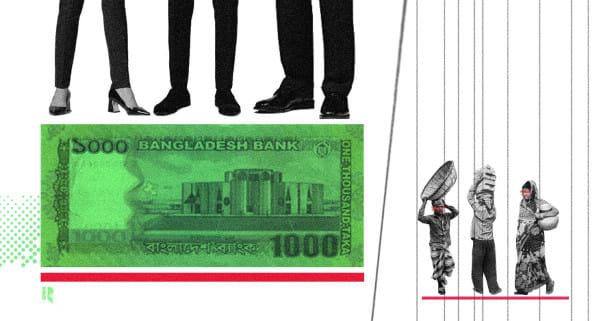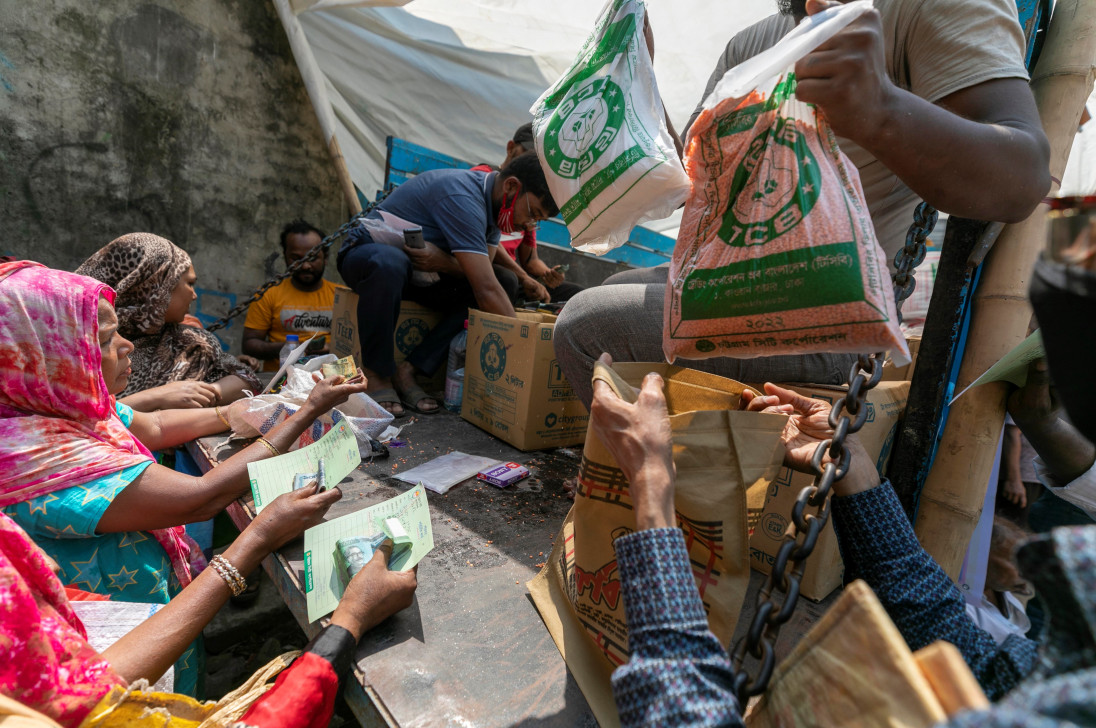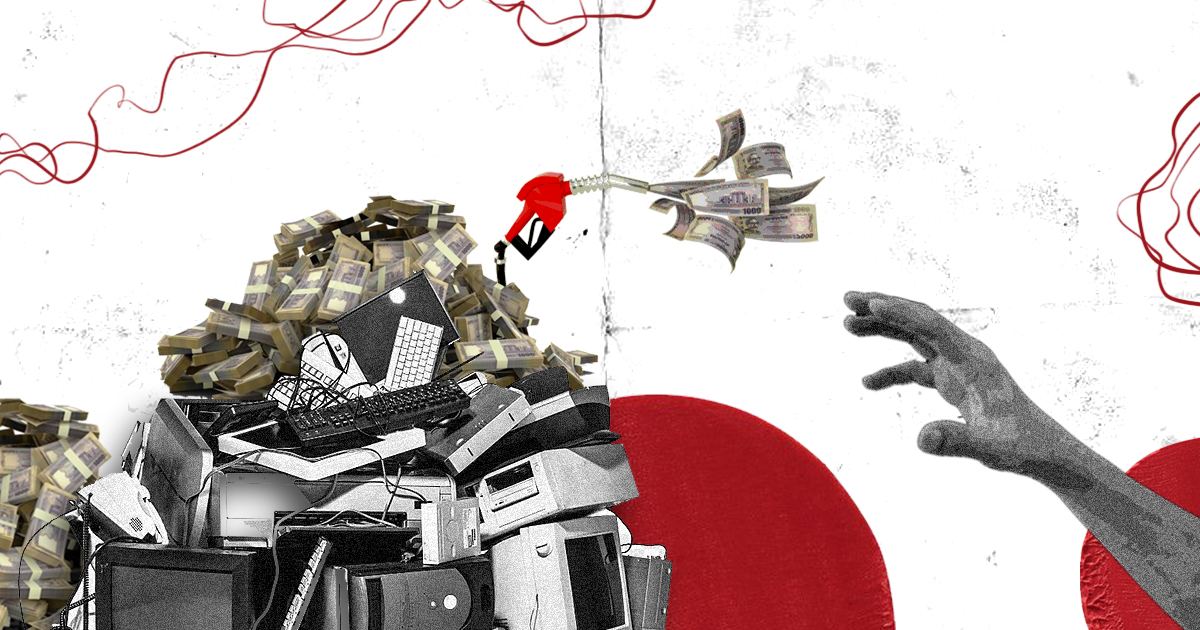How we can mitigate the effects of rising inequality

"The question is whether Bangladesh's strong economic performance can be sustained. As matters stand, the country's prospects are excellent, but there are risks that policymakers will need to take into account," wrote Kaushik Basu a few years ago. The question he posed is still on everyone's mind.
So, what are the risks that Basu, the former chief economist at the World Bank, is referring to? The growing level of income and wealth inequality is undoubtedly one of them. Inequality in Bangladesh is rising, slowly but steadily. And it poses a very severe risk to our economic development and social stability. The government and society at large have to pay attention and work on the issue on an ongoing and sustainable basis.
The data from the past Household Income and Expenditure Surveys (HIES) carried out by the Bangladesh Bureau of Statistics over the last two decades clearly indicate the trend pointing to the rising levels of income and wealth inequality. Whether we take the well-known measure, the Gini coefficient, or an alternative measure, such as the Palma ratio, and compare the income share of the top 10 percent with the income share of the bottom 40 percent, the signs are clear. We are heading towards a very unequal society.
The final report of HIES 2022 released by BBS last December showed that the top 10 percent of households increased their share of wealth to 40.91 percent, around 2.83 percentage points rise in the past six years. In 2016, their share of wealth was 38.09 percent and 35.84 percent in 2010.
One of UN's Sustainable Development Goals, SDG 10, is unequivocal about the deleterious effects of an increasingly unequal society. First, it can weaken trust in public institutions and undermine democratic governance. Secondly, inequality threatens long-term social and economic development, harms poverty reduction, and destroys people's sense of fulfilment and self-worth. Finally, this, in turn, can breed crime, disease and environmental degradation. Obviously, all this also may also result in political unrest and stunted progression in other dimensions.
The Princeton economic historian Walter Scheidel paints a more ominous scenario. In his book "The Great Leveler: Violence and the History of Inequality", he offers a panoramic view from the Stone Age to the 21st century, and provides the answer in unambiguous terms. "Are mass violence and catastrophes the only forces that can seriously decrease economic inequality? To judge by thousands of years of history, the answer is yes!"
When asked about Bangladesh's growing inequality, a top member of the ruling party and a cabinet minister brushed it aside. "If the country's income increases, people's income increases as well. There is currently nothing the government can do if someone's income climbs unnaturally or appears unappealing. You'll see in the future," he said. This perception, that the benefits of a growing economy will eventually benefit the lower rungs of the income scale, has been known as the "trickle down" theory but has been discredited in serious economic and political studies.
Qazi Kholiquzzaman Ahmad, the eminent economist who worked closely with the current regime over the last decade and a half, recently conceded that the concentration of wealth and income has reached epic heights leading to an erosion of our societal values. Dr Ahmed was the Chairman of Palli Karma-Sahayak Foundation (PKSF), the largest government agency for sustainable poverty reduction through employment generation.
At this critical point, the government must redouble its efforts to reduce the gap between the super-rich and the rest of society. The programmes to fund rural development and skills training must be strengthened. Youth unemployment and underemployment rates are at an all-time high. One of the reasons for rising inequality is the failure to pull more of the growing workforce away from agriculture toward better-paying employment.
The urgency to take action for this government is driven by the risk of running into headwinds as we try to achieve middle-income status. Studies done in Bangladesh and elsewhere show that while wages are rising faster at the bottom, inflation has hit low-wage workers harder. Simulations carried out with data from various countries study suggest that at the low-income stage, economic inequality is the primary driver of civil unrest, with global, regional and national issues contributing to instability.
Maplecroft, a global risk intelligence company, looked at trends over five years across 40 emerging markets, including major manufacturing hubs like Bangladesh, Indonesia, Mexico, Thailand, and Turkey, and assessed risks related to civil unrest, government instability, sustainability, resilience and ESG issues.
It suggests civil unrest and internal conflicts as a "primary threat to manufacturing," with more than three-quarters of the assessed emerging markets experiencing an increase in civil unrest over the past five years. Alarmingly, Bangladesh ranks seventh highest on political risk related to civil unrest, according to the report.
As the new government consolidates its power, it can take up the issue of inequality, poverty, and social programmes as a priority. There are three lines of attack: skills training for the young and the experienced workers to keep up with global trends as technology shifts labour demand from routine low- to mid-level skills to new, higher-level skills; fiscal policy including estate and wealth tax to reverse the concentration of wealth as crony capitalism strengthens its grip on the economy; and foster policy to face head-on the forces that lead to "unequal distribution of capital income with rising market power and economic rents enjoyed by dominant firms in increasingly concentrated and winner-takes-all markets" (Brookings Institution, "Rising Inequality: A major Issue of our time", 2023).
Dr Abdullah Shibli is an economist and works for Change Healthcare, Inc., an information technology company. He also serves as senior research fellow at the US-based International Sustainable Development Institute (ISDI).
Views expressed in this article are the author's own.
Follow The Daily Star Opinion on Facebook for the latest opinions, commentaries and analyses by experts and professionals. To contribute your article or letter to The Daily Star Opinion, see our guidelines for submission.




 For all latest news, follow The Daily Star's Google News channel.
For all latest news, follow The Daily Star's Google News channel. 

Comments